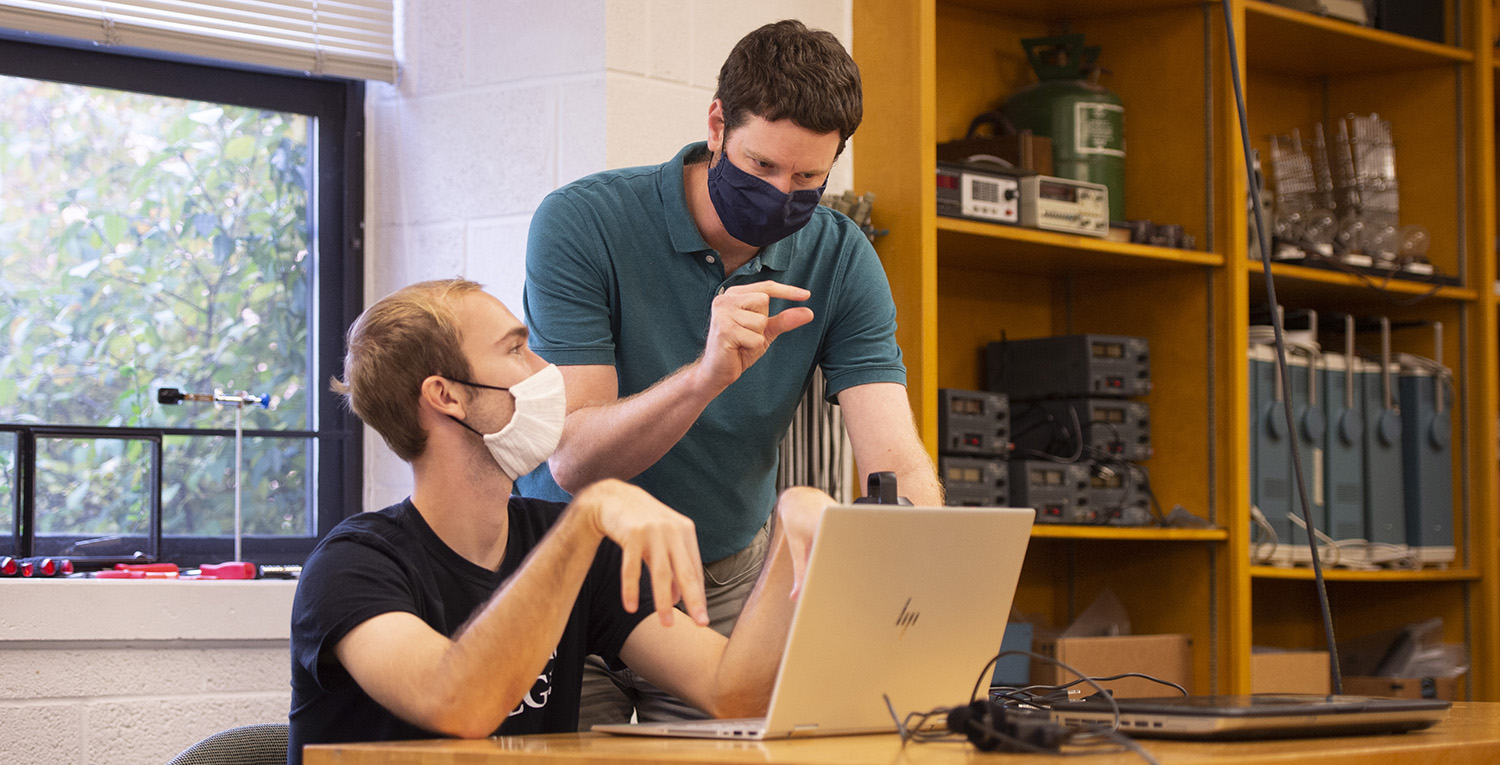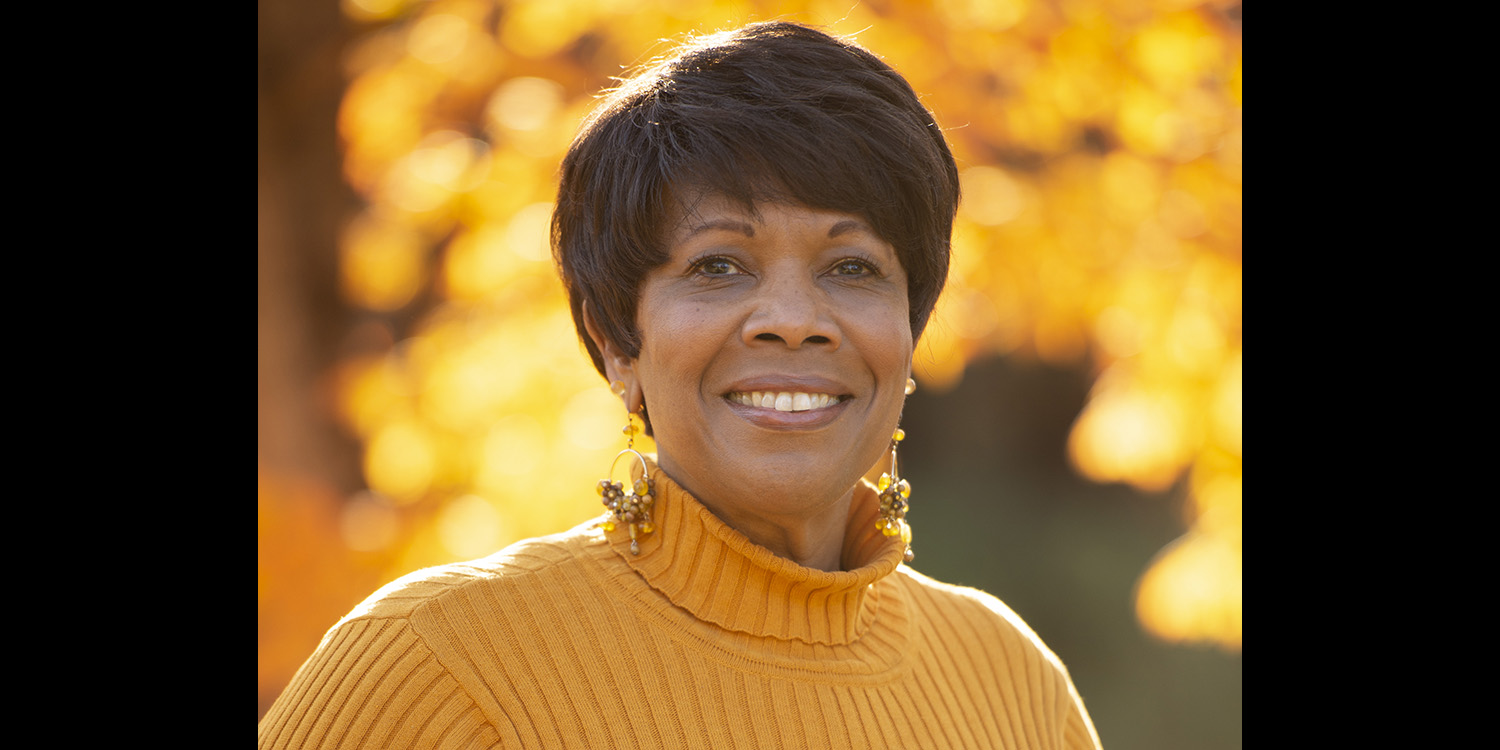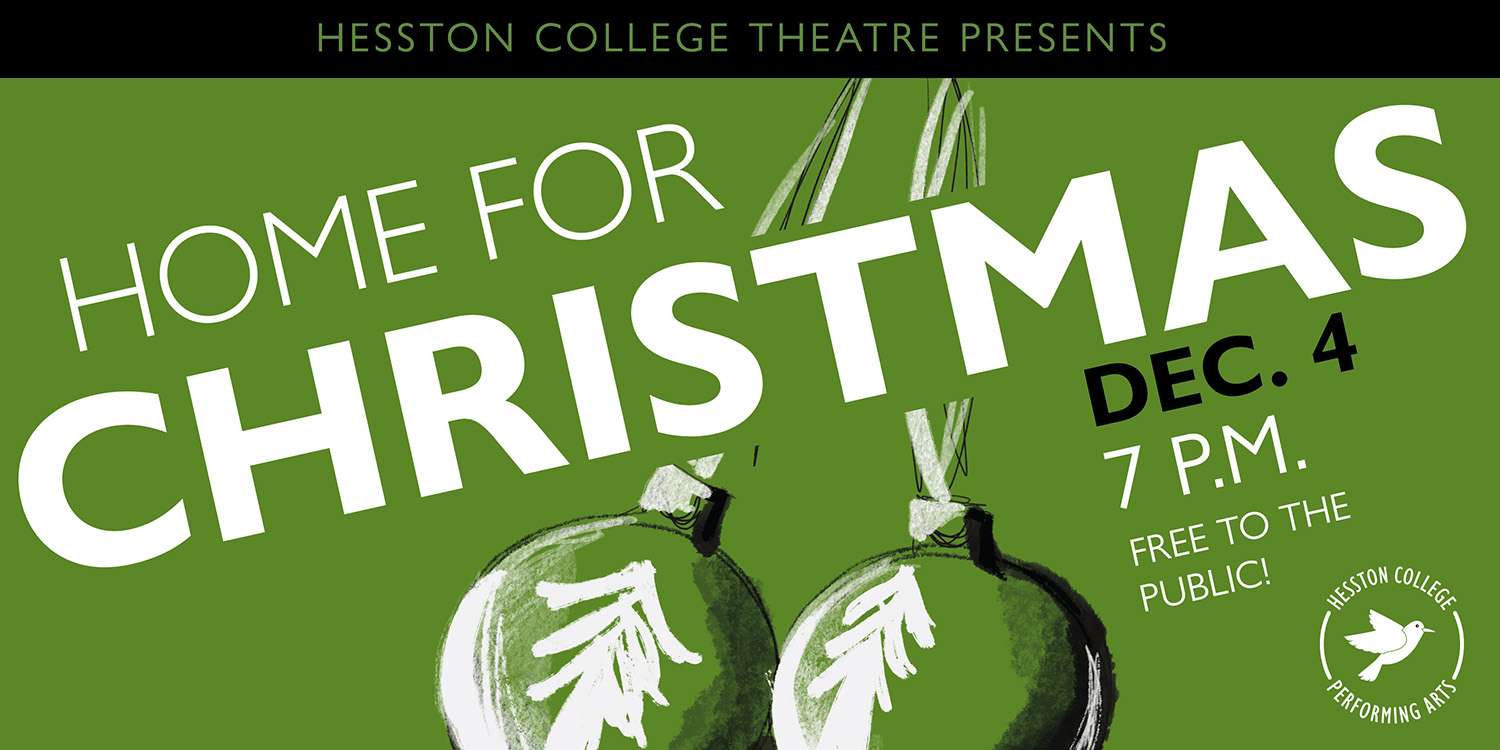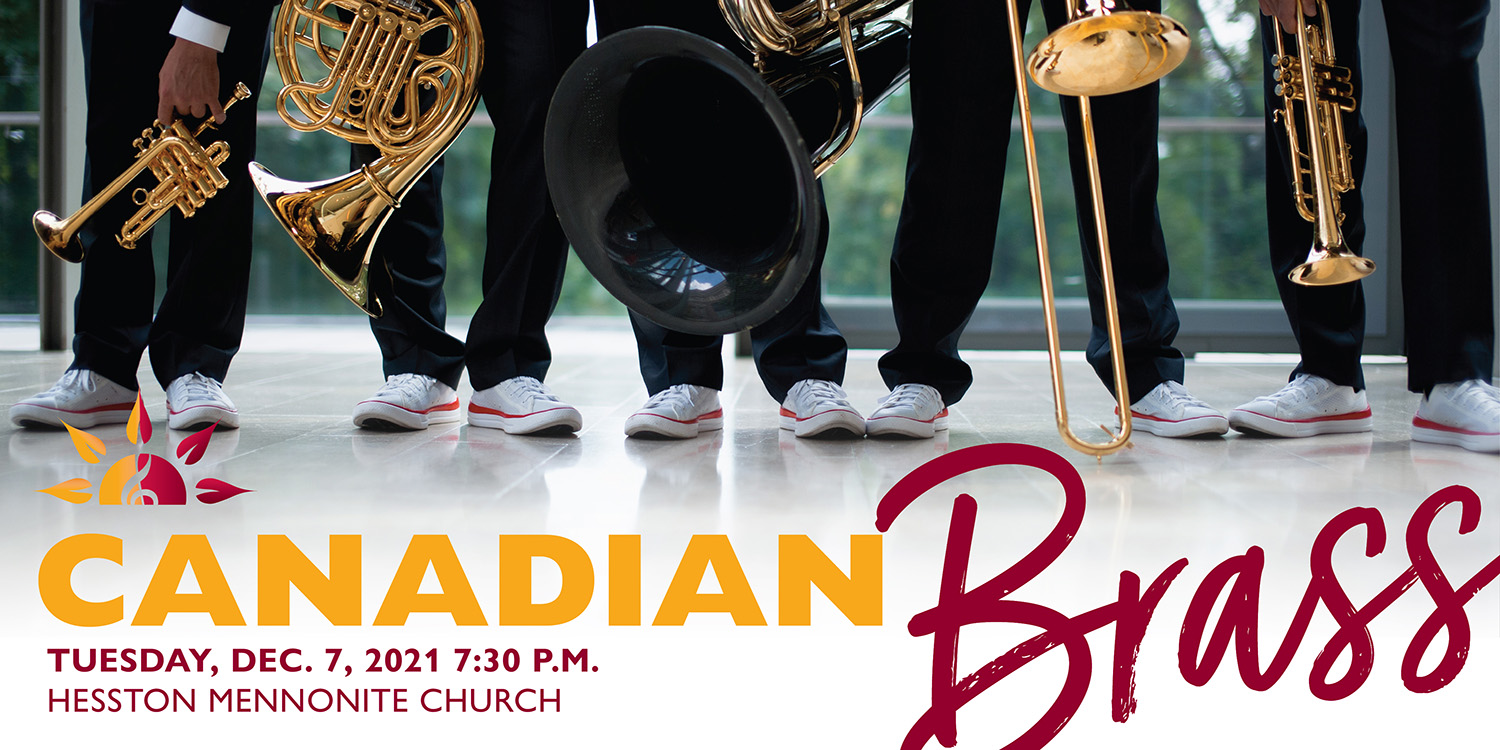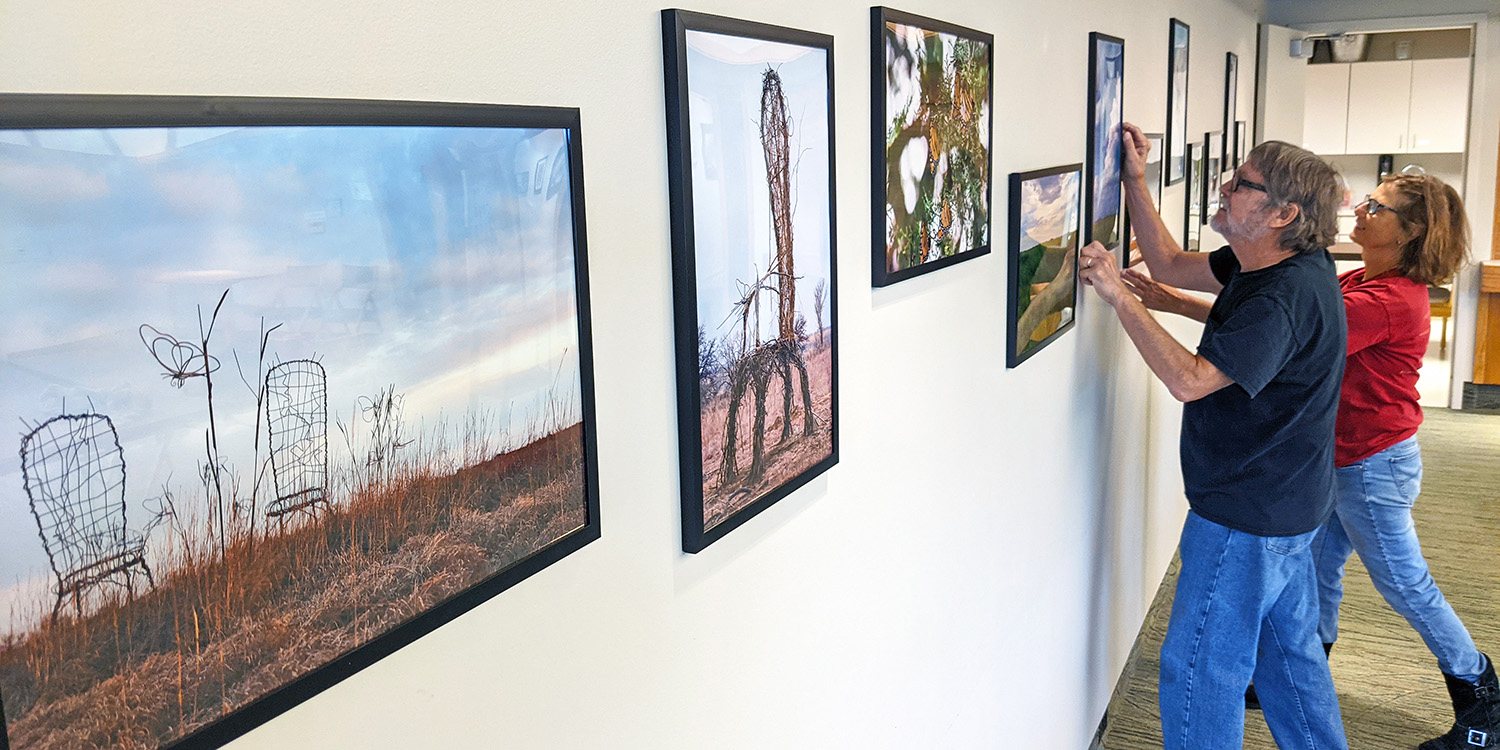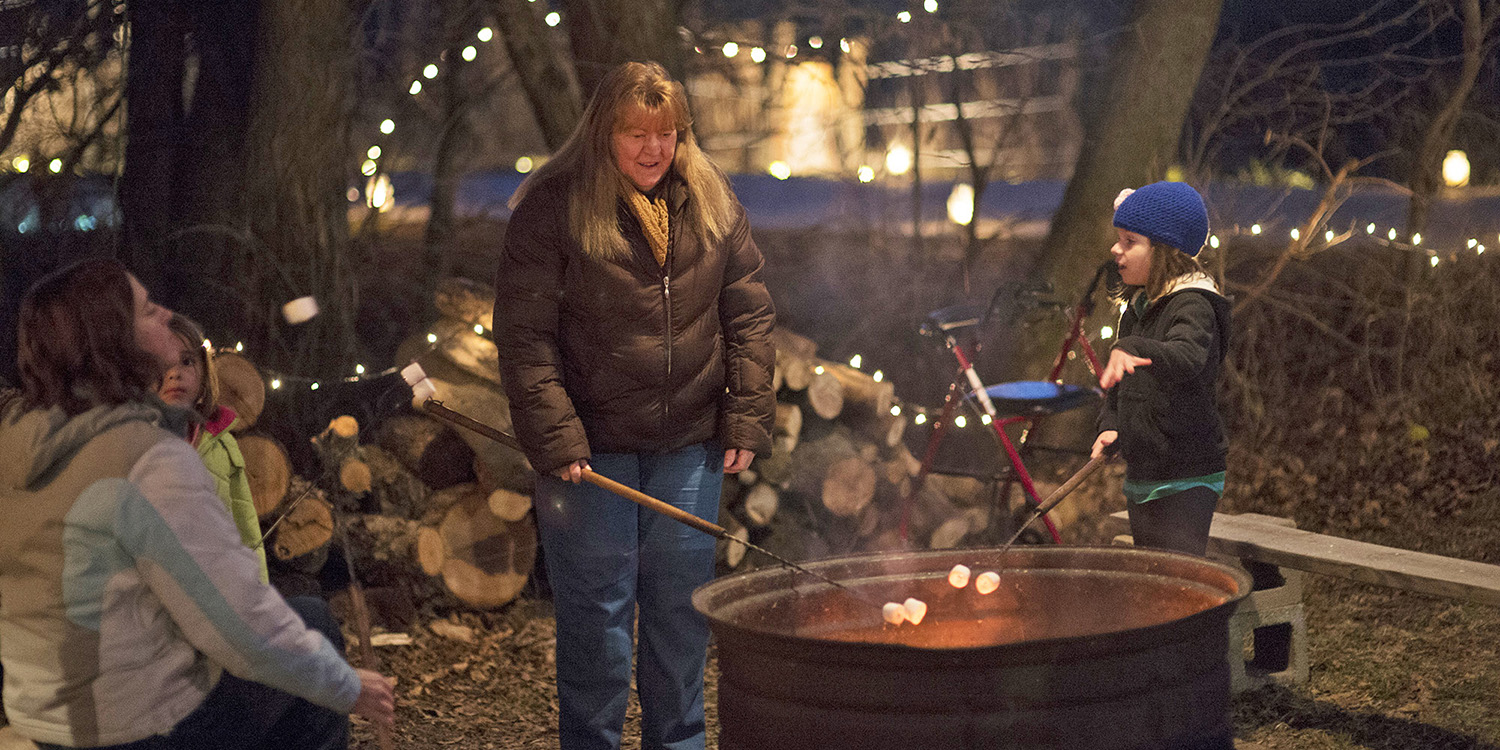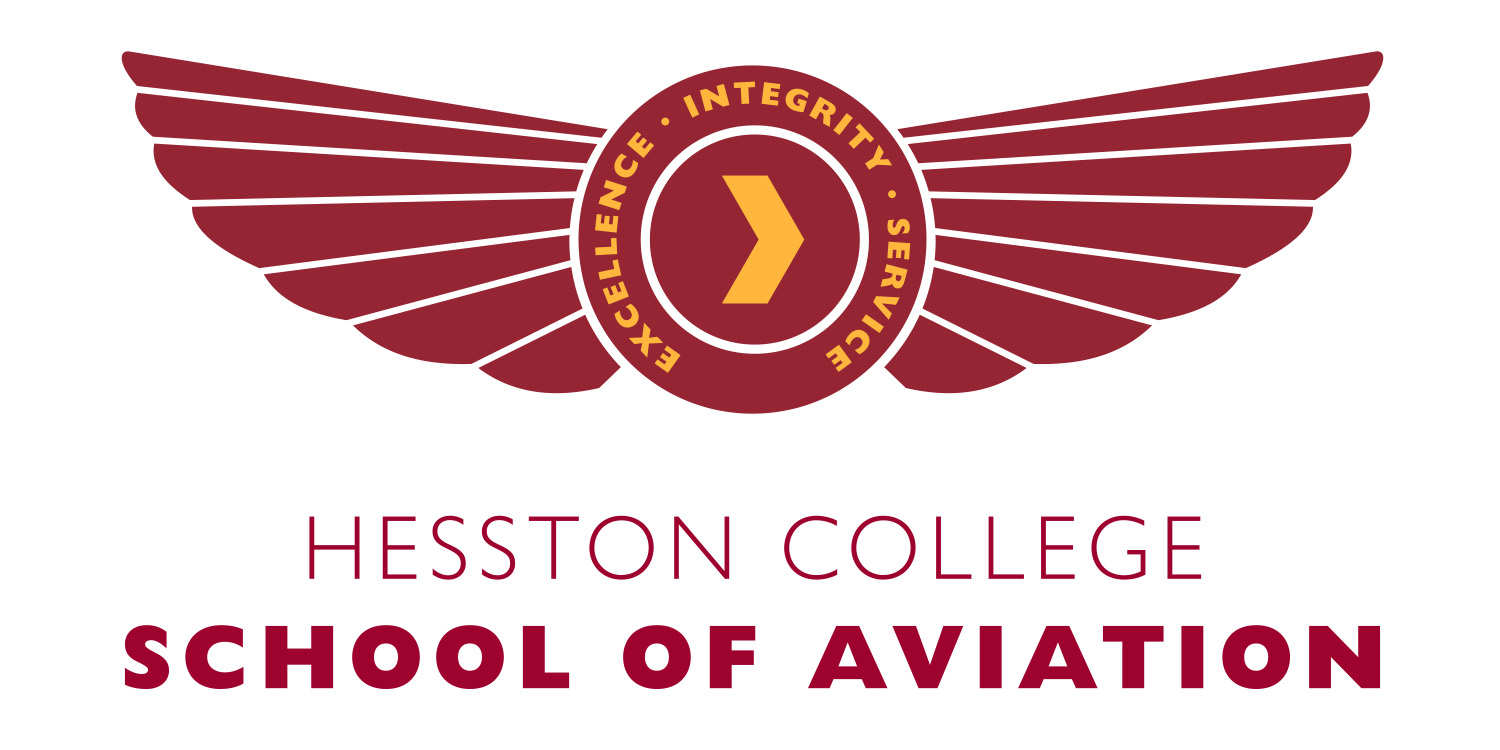
Fall 2021 academic honors announced
The Hesston College Registrar’s Office announced the names of full-time students whose fall 2021 semester grades earned them a place on the Dean’s List (3.90 to 4.00 GPA) and Honor Roll (3.50 to 3.89 GPA).
Dean’s List
First-year students
Alex Blum, Topeka, Kan.
Trenton Canaan, Cheney, Kan.
David Duncan, Wichita, Kan.
Derick Fonseca, San Pedro Sula, Honduras
Luke Huyard, Harrisonburg, Va.
Isaiah Jones, Cleburne, Texas
Suzannah Karako, Galena, Mo.
Haydon Mead, Eureka, Kan.
Ginny Miller, Rockingham, Va.
Madelyn Mullet, Milford, Neb.
Reese Peterson, Omaha, Neb.
Nicholas Roghair, Irvine, Calif.
Fikir Yemane, Addis Ababa, Ethiopia
Sophomores
Katie Alaniz, Longmont, Colo.
David Beachy, San Nicolas FIN, Philippines
Sara Bianchi Muschio, Trento, Italy
Shelby Bontrager, McPherson, Kan.
Alisha Dorsing, Othello, Wash.
Alexis Driscoll, Sedgwick, Kan.
Mariah Gilmartin, Wichita, Kan.
Ethan Hildebrand, Stafford, Kan.
Emily Kelley, Wylie, Texas
McKayla Long, Highland, Calif.
Hebron Mamo, Addis Ababa, Ethiopia
Bethany Masters, Dundee, Ohio
Kelly Miller, Archbold, Ohio
Alyssa Nolt, Dalton, Ohio
Sadie Oesch, Caldwell, Idaho
Samuel Otto, Orrville, Ohio
James Peters, Hesston Kan.
Jessica Raharjo, Semarang, Indonesia
Katherine Robeck, Sweet Home, Ore.
Jovan Suarez, Salina, Kan.
Samuel Wiese, Omaha, Neb.
Juniors
Jennifer Komarek, Sedgwick, Kan.
Tobie Plett, Winnipeg, Manitoba, Canada
Romina Xhari, Lezhe, Albania
Seniors
Leah Booton, Lehigh, Kan.
Olivia Hernandez, Hesston, Kan.
Berit Kelley, Lawrence, Kan.
Kara Longenecker, Harrisonburg, Va.
Anna Myers, Sedgwick, Kan.
Dara Ness, Goddard, Kan.
Alexis Silvey, Colorado Springs, Colo.
Jara Strickland, El Dorado, Kan.
Isabelle Wortz, Hutchinson, Kan.
Honor Roll
First-year students
Kezia Angeline, Semarang, Indonesia
Joshua Binau, Bartlesville, Okla.
Dalton Budzene, Buckner, Mo.
Olivier Cruz Camilo, Santo Domingo, Dominican Republic
Joshua Dodson, Enid, Okla.
Minori Fujioka, Yokohama-shi, Japan
Alvaro Hernandez, Horizon City, Texas
Kanaloa Kapololu, Kaneohe, Hawaii
David Lambert, Pueblo West, Colo.
Malachi Lind, Goshen, Ind.
Hayato Sato, Hachioji, Japan
Mason Schneider, Cheney, Kan.
Anseda Xhari, Lezhe, Albania
Rozario Zogu, Lezhe, Albania
Sophomores
Luke Allison, Hurley, S.D.
Margaret Beyer, Harrisonburg, Va.
Samantha Fatka, Warrensburg, Mo.
Maria Gerber, Dallas, Texas
Jeffrey Halstead, Topeka, Kan.
Fortesa Hysenaj, Istog, Kosovo
Joshua Kamara, Burnsville, Minn.
Jesse Kanagy, Lancaster, Pa.
Kylan Lacaze, Edmond, Okla.
Trent Mars, Corning, Kan.
Madyson McCage, Lindsay, Texas
Madison Michalek-Rosales, Lakeside, Calif.
Loribeth Miller, Chouteau, Okla.
Ryusei Ogawa, Yokohama, Japan
Lisa Schmidt, Moundridge, Kan.
Lacy Spaulding, Moundridge, Kan.
Samantha Stiles, Bentley, Kan.
Chyandra Teague, Claremore, Okla.
Rachel Teeter, Hesston, Kan.
Isaac Troyer, Millersburg, Ohio
Lance Walker, Ulysses, Kan.
Paige Weber, Freeport, Ill.
Juniors
Jordan Beal, Wichita, Kan.
Rachel Weaver, Broadway, Va.
Senior
Keiara Evancho, Newton, Kan.
Bachelor of Science in engineering program approved
Hesston College’s Bachelor of Science in engineering, introduced as part of the college’s Vision 2025 four-year program expansion plan, was approved on Nov. 19. This approval is crucial to the program’s anticipated launch of its first junior class in August 2022.
“Having the Higher Learning Commission Institutional Action Council approve the Bachelor of Science in engineering with a mechatronics track is a big step,” said Carren Moham, vice president of academics. “The fact that the HLC Change Panel initially recommended approval so early was an extremely good sign, as it doesn’t usually happen so quickly. It is a testament to the very thorough and diligent work of the writers of the proposal.”
In October, a Higher Learning Commission (HLC) Change Panel reviewed the program application, which will allow Hesston College to offer a Bachelor of Science in engineering with a mechatronics track, totaling 126 credit hours.
Success of the approval is credited to a strong, pre-existing associate degree program in pre-engineering. The demand for an engineering program alongside increasing student inquiries pushed faculty to craft robust and varied associate-level pre-engineering tracks.
“The foundation has been in place, and the excitement of today is now we get to build on it,” said Johann Reimer, director of engineering education. “Our very first junior class will get to experience four brand new engineering courses in the fall, followed by four new engineering courses in the spring.”
In the 2023-24 academic year, Hesston College will launch nine additional courses for senior engineering students. Updated facilities will support the new program, as Friesen Center becomes the new home for engineering. The 7,500 square foot space will house three labs and faculty offices.
“Our community ties run deep and we have many connections with local industry here in Hesston, and the surrounding area with companies like Excel, AGCO and Harper Industries to name a few,” Reimer said. “These connections will be essential as we build out the program and look to connect our students with class projects, internships and ultimately jobs.”
Hesston College announces hiring of Dr. Carren Moham as vice president of academics
Hesston College President Joseph A. Manickam announced the appointment of Dr. Carren Moham as vice president of academics. Dr. Moham had served as Hesston’s academic dean, and most recently as the interim vice president of academics.
Moham’s role as vice president of academics includes serving as a liaison between the faculty and the college’s administrative council. Moham will also oversee hiring of new faculty and the implementation of academic initiatives across campus. She will continue to chair the college’s Faculty Development Committee and serve on the leadership team for the Diversity, Equity and Inclusion Council.
“During her time with us, Dr. Moham had instilled a culture of rigor,” said Dr. Manickam. “Dr. Moham’s gifts, talents and skills will be instrumental in moving the college forward into the future.”
Dr. Moham assumes this leadership role as Hesston College continues to grow its mixed model profile. Four bachelor’s degree programs have been added to an offering of more than 50 associate degree programs of study, the most recent being a bachelor of science degree in engineering with a mechatronics track, which was approved by Hesston’s accrediting body on Nov. 19, 2021.
“I am honored and excited to lead the academic program at Hesston College, especially at such a pivotal time,” said Moham. “I will work diligently to create a culture that values both rigor and support for our students. Faced with growing animosity and divisiveness at every turn, the world needs Hesston College graduates now more than ever.”
“Dr. Moham has the skills and experience to help us realize our vision of moving from being a ‘college for Mennonites’ to becoming a ‘Mennonite college for all,’” said Manickam. “Her energy, vision and passion for strong academics through strong mentorship has already changed our campus. Dr. Moham’s perspective, intellect and familiarity with executive-level administration will make us a stronger team.”
Dr. Moham earned a bachelor’s degree from Northeastern State University (Tahlequah, Okla.), a Master of Music from the University of Oklahoma (Norman), and a Doctor of Musical Arts from the Ohio State University (Columbus). A trained professional opera singer and seasoned performer, Dr. Moham lives in Hesston.
2022 Neuf Memorial Run returns in person for one final run
After moving virtual in 2021, the Neuf Memorial Run returns to an in-person event to the campus of Bethel College on Jan. 8 2022. The 9K and 2-mile walk/run honors the memory of Russ Neufeld, a long-time Kansas resident who passed away on Jan. 21, 2017 after an 18-month fight with Non-Hodgkin’s Lymphoma. This will be the fifth and final Neuf Memorial Run.
The event raises money for the Leukemia and Lymphoma Society and the Russ Neufeld Memorial Scholarship at Hesston College. Over the first four years of the Neuf Memorial Run, the race has raised over $50,000 from race proceeds and donations.
Staging will take place at Memorial Hall on the campus of Bethel College, North Newton, Kan., and the race will start at 10 a.m. outside of Mojo’s Coffee Shop (300 E. 27th St.). The Neuf early entry fee ends at midnight on Dec. 8 and is $45 for the 9K and $35 for the 2 mile. The entry fee increases to $50/$40 on Dec. 9, and online registration closes at midnight on Jan. 6. On site registration will be available on race day for $50/$40.
All registered runners receive a timing bib from Timer Guys, a commemorative Neuf pint glass and post-race festivities from Crust and Crumb which include coffee, hot chocolate and a croissant. Prizes will be awarded to the top three male and female finishers for the 9K and 2-mile races. Race day registration closes 15 minutes before the race.
In addition, the Neuf 90k Virtual Challenge returns to encourage increased physical activity during the holiday season. The challenge is to run/walk 90K (or more) between December 9, 2021, and January 8, 2022. The virtual challenge includes entry into either the 9k or 2-mile run along with a commemorative running jacket for an entry fee of $90 until Dec. 8.
Prizes will also be awarded for the virtual and in-person best-costume participants in the following nine categories: best costume, most creative place to run, most creative time to run, best beard (real or otherwise), best kilt, best display of Neuf branding, bravest running outfit, best “spread the love” message, best family/group themed costume.
The race celebrates community as Neufeld described in his final Facebook post: “Take all this love you have and share it,” he wrote. “It only multiplies and there are so many who could use it…just spread the love folks – it’s the only thing in this world that endures.”
The January run and the 9K distance are as unique as Neufeld. A transplanted Canadian, Neufeld relished the cold weather, and Neuf – “nine” in French – was a nickname for Neufeld. His car’s stick shift handle was a 9-ball.
“Home for Christmas” program to examine diversity of holiday experiences through theatre and music
The Hesston College Performing Arts Department will present “Home for Christmas” – a joint effort between Bel Canto Singers, conducted by Russell Adrian; Global Voices, conducted by Ken Rodgers; and theatre students, led by director Rachel Jantzi – that will explore what coming “home for Christmas” means for a diversity of people and cultures. The performance will take place Saturday, Dec. 4 at 7 p.m. at Hesston Mennonite Church.
“We are creating a show by piecing together our own stories; interviews from campus, articles and poems; and dance to communicate what coming ‘home for Christmas’ means for different people,” said Rachel Jantzi, director of theatre at Hesston College. “It doesn’t look the same for some of our students from around the world, or those who haven’t seen family due to COVID-19, or for any other multitude of reasons. For some, it’s just as it’s been, steeped in good food, family, tradition and nostalgia.”
The program will weave together original and adapted theatre pieces and music selections by Bel Canto Singers and Global Voices. Notable music selections include “God Rest Ye Merry Gentlemen,” “Away in a Manger” and “The First Nowell.”
Two student conductors, Kelly Miller ’22 and Isaac Tice ’22, will conduct selected choral pieces as part of their Hesston College conducting course.
“We will be spending several rehearsals pulling together all our original and pulled written resources, then we will begin staging scenes we create from that work and also bring in bits of modern dance as a storytelling device,” Jantzi said. “We plan to incorporate multimedia and an interactive art piece that will help tell our story.”
All performers fully vaccinated for COVID-19 will perform without masks. Audience members are required to wear masks. No tickets are required, but a free-will offering will be accepted following the performance.
Canadian Brass to present holiday concert as part of Sunflower Performing Arts series
Lauded as one of the most popular brass ensembles today, Canadian Brass will perform a holiday concert as part of the 2021-22 Sunflower Performing Arts season on Tuesday, Dec. 7 at 7:30 p.m. at Hesston Mennonite Church.
“Sunflower Performing Arts takes seriously our commitment to present a variety of excellent performing artists, some of whom are unfamiliar, and others, like Canadian Brass, who are well-known,” said Holly Swartzendruber, director of Sunflower Performing Arts. “We want the holiday performance in particular to be of the highest caliber, and Canadian Brass definitely fits that description.”
The quintet – Chuck Daellenbach on tuba, Brandon Ridenour and Caleb Hudson on trumpet, Achilles Liarmakopoulos on trombone and Jeff Nelsen on horn – performs classical music served up with lively dialogue and theatrical effects. The varied Canadian Brass repertoire features brass standards as well as a wide-ranging library of original arrangements, including the works of Renaissance and Baroque masters, Classical works, marches, holiday favorites, ragtime, Dixieland, Latin, jazz, big band, Broadway and Christian music as well as popular songs and standards.
In addition to international tours on five continents, Canadian Brass has also appeared on “The Tonight Show,” “Today,” “Entertainment Tonight,” and as guest artists on “Evening at Pops” with John Williams and the Boston Pops, Beverly Sills’ “Music Around the World” and numerous PBS specials, including an appearance on “Sesame Street.”
“We are really looking forward to this concert, and a number of community folks have expressed excitement as well,” Swartzendruber said.
Single ticket prices for Canadian Brass range from $25 to $29, depending on seating section, with discounts available to students and senior citizens.
For more information or to purchase tickets, call 620-327-8158.
Audience members will be required to wear a mask, according to current Hesston College guidelines.
Art exhibit – “Parallels” – installed at Dyck Arboretum
Visitors to Dyck Arboretum of the Plains this fall will be treated to a stunning art installation, “Parallels,” depicting elements of the prairie in a scale that is larger than life. In October, Prairie Works Design Inc. artists Ann Zerger and Chip Parker installed five metal sculptures depicting prairie grasses, butterflies and caterpillars on the arboretum grounds. In addition, sixteen photographs and video footage capturing moments in the artists’ Moundridge-based studio, are on display in the Visitor Center.
Though the sculptures have been on display since October, the entire multi-media installation will be available for public viewing at the arboretum from November 26 through mid-December. Zerger will present an artist talk in the Visitor Center on Wednesday, December 1, at 4 p.m. The Visitor Center is open Monday through Friday from 9 a.m. to 4 p.m. and during special events, such as the Winter Luminary Walk, and the grounds are open to the public every day from dawn until dusk.
Zerger, Professor Emeritus of Art at McPherson College, and Parker, an award-winning architect, returned to Zerger’s family farm in 1988 and opened their architecture and sculpture studio near Moundridge. In more recent years, they have developed a portion of their land in southwestern McPherson county into what they call an ”Eco-Art-Sphere,” which includes both permanent and ephemeral sculptures. In addition, the artists have planted native wildflower and grass species to create a five-acre monarch waystation.
On their website, the artists state, “The focus of this eco-arts sphere was to create a permanent environmental installation on a portion of land that has been in Ann’s family for over 100 years that would celebrate the Great Plains prairie and the local and migratory wildlife that depend on this environment for existence. The intent was to create an installation that would impede the return of this land to agriculture or any other type of production as well as be a catalyst for a visceral conversation with the viewer on the beauty, diversity and serenity of the prairie.”
All elements of the installation are available for purchase, with a portion of the proceeds being generously donated to the arboretum by the artists. Inquire in the arboretum office for pricing. For more information about the artists, visit pwdstudios.com. For more information about Dyck Arboretum of the Plains, visit dyckarboretum.org.
Dyck Arboretum announces 2021 winter luminary walk
Dyck Arboretum of the Plains announces its 2021 Winter Luminary Walk, which will take place November 26 to 28 and December 3 to 5, 5:30 p.m. to 8 p.m. This outdoor holiday event provides a safe, fun way to gather with family and friends to enjoy the beauty of the prairie in winter.
After a one year hiatus on serving food and drink at the event, the local scout troop will serve hot beverages outdoors as a fundraiser and marshmallow roasting will return to the fire pits. Although no live flame luminaries will line the path, tribute luminaries to memorialize a lost loved one will be available by donation near the Visitor Center.
Our Prairie Pavilion “snow globe” stage will feature the following performers, each performing two 45 min sets at 6 and 7 p.m. each night: classical guitarist Howard Glanton on November 26, harpist RoJean Loucks on November 27, pianist Ken Rodgers on Nov 28 and December 3, violin/clarinet duo “Outside the Bach(s)” on December 4 and square dancers from the “Shoe Scuffers” of Hesston and “Circle 8” from Park City on December 5. Performers will be inside the Prairie Pavilion, with music projected outside through speakers. Visitors can watch performances from the covered patio.
In addition, creative, crafty individuals are invited to participate in “Wreath-o-rama,” a wreath decorating contest. All sizes of wreaths and all kinds of wreath materials will be accepted. However, wreaths will be judged on creativity and use of natural materials. Entries are due at the Prairie Pavilion on Nov. 23. Submissions will be displayed in the Prairie Pavilion during the Luminary Walk and winners will be announced on December 5. Prizes for an adult category (age 13+) and children’s category (ages 5-12) will include Dyck Arboretum memberships and gift cards. Contact LeAnn Clark at 620-345-6806 with questions.
All Luminary Walk attendees should observe guidelines for a safe event, which can be viewed at dyckarboretum.org/luminary-walk. Tickets are available online, in the gift shop or by calling the office in advance. Your ticket purchase and donations support the ongoing work of the arboretum, which seeks to cultivate transformative relationships between people and the land.
Dyck Arboretum of the Plains in Hesston, Kansas is a 29-acre arboretum owned by Hesston College.
Aviation students make first in-person appearance, perform well in regional competition
Students from Hesston College’s School of Aviation traveled to Mankato, Minnesota on Tuesday, Oct. 19, to participate in the National Intercollegiate Flying Association (NIFA) Region VI SAFECON competition. The three-member team, including Tobias Yoder ’23, Joshua Fleming ’24 and Matthew Manickam ’24, placed highest in the flight simulation event.
Sophomore Joshua Fleming ranked highest overall for Hesston College, coming in second out of 24 competitors in the ground trainer/flight simulation event. Manickam finished eighth and Yoder finished 11th out of 24 contestants.
The flight team also participated in computer accuracy and simulated comprehensive aircraft navigation events but anticipates expanding its participation into all competitive events, including all flight activities, next year.
In the computer accuracy event, Tobias Yoder placed highest for Hesston College, coming in 17th place out of 36 students. Fleming finished 23rd and Manickam finished 25th. On simulated comprehensive aircraft navigation, Manickam finished 26th, Fleming 31st and Yoder 32nd out of 37 competitors.
Hosted by Minnesota State University – Mankato, the competition featured schools from North Dakota, Iowa, Missouri, Nebraska, Minnesota and Kansas.
“Hesston College flight team members represented the School of Aviation with excellence and integrity as they participated in three distinct aviation-related events,” said Mike Baker, director of aviation at Hesston College.
Hesston College School of Aviation participated in NIFA Region VI virtual competition last year, but this year marks the first time the team attended an event in person.
The NIFA organization works to develop and advance aviation education and to promote, encourage and foster safety in aviation.
“The Hesston College flight team continues to prepare for next year’s Region VI SAFECON event, which will be hosted by the Kansas State University Salina Aerospace and Technology Campus,” Baker said.
In the upcoming months, the Hesston College School of Aviation will provide additional information on how community members can support the Hesston College flight team, to ensure that our students can both train, and participate in all NIFA-sanctioned competitions.

